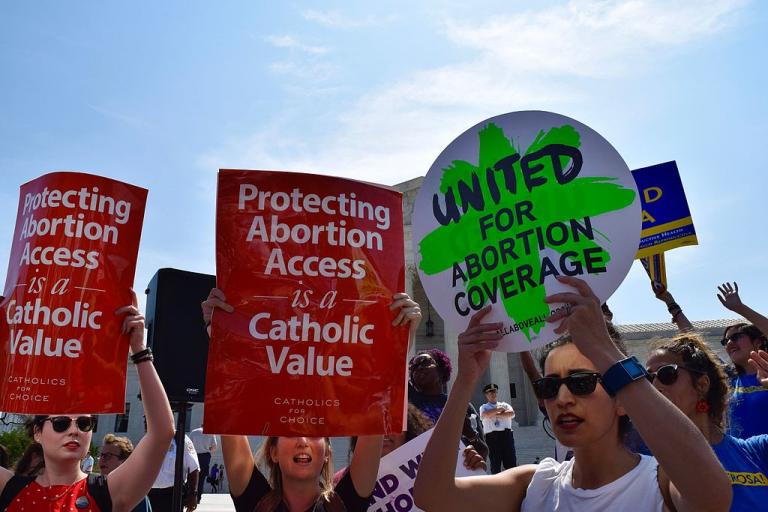Today politicians in the U.S. and Europe are proudly trumpeting their Catholic identity, even as they crusade against their church’s teachings on abortion and sexuality.
Dan Hitchens–the son of the conservative Anglican Peter Hitchens, the brother of the late “New Atheist” Christopher Hitchens–discusses this paradox.
From Dan Hitchens, The Trouble with Catholic Politicians, Catholic Herald:
The good news is that Catholicism is back in fashion. Gone are the days when Tony Blair kept his papist sympathies a secret in case people thought he was a “nutter”, or when John F Kennedy insisted that his religion was “not relevant” to his presidential campaign. Across Western Europe and North America, politicians are enthusiastically proclaiming the relevance of their Catholicism. Last month, for instance, the 28-year-old socialist Alexandria Ocasio-Cortez won a shock victory in a Democratic primary in New York. She has written of how “Christ came to me”, and says her policy positions on criminal justice are rooted in the Catechism and the Lord’s Prayer.
The bad news is … But you’ve already guessed. On her website, Ocasio-Cortez demands “open access to safe, legal, affordable abortion, birth control, and family planning services” and an end to “intolerance and bigotry” against “the LGBTQIA+ community”, preferably involving the threat of legal penalties against the “bigots” (Ocasio supports the Equality Act’s proposed restrictions on religious liberty). Not quite what you’d find in the Catechism.
Catholics in politics have often been conflicted, uneasy or embarrassed. What’s relatively new is their bold, cheerful embrace of a Catholic identity while remaining at odds with Church teaching. In Germany, there is Annegret Kramp-Karrenbauer, often touted as Angela Merkel’s successor-in-waiting, who belongs to the Central Committee of German Catholics and recently called for the ordination of women. In Canada, there’s Prime Minister Justin Trudeau, who has ordered every single MP in his party “to stand up for women’s rights to choose”. In 2011, when one MP asked how Trudeau’s politics could be squared with his religion, Trudeau said he was “surprisingly upset”. Catholicism, he claimed, was “an extremely important part” of his political values.
It’s touching, in a way, to see that unorthodox believers still have such affection for the Church. But it will be even easier to shut down Catholic institutions or to sack Catholics from their jobs if orthodoxy is seen as optional. (“My local MP is a Catholic and he supports gay marriage – if you oppose it, it must be out of sheer homophobia.”) And it impairs the Church’s mission when Trudeau and others spread doctrinal confusion.
The same could be said of other “Christian” politicians, but the defined content of Roman Catholic teaching and its rejection of the individualized allowances of much of Protestantism makes this particular kind of hypocrisy stand out more.
And, yes, Hitchens goes on to acknowledge the similar inconsistency of Catholics on the right who oppose immigrants and restraints on the free market, also against the official teachings of Rome.
The problem, I think, is that religion is more and more seen as an “identity,” rather than a relationship with God, much less a set of beliefs.
I’ve seen the same thing among some Lutherans who promote non-Lutheran beliefs and practices. What do you mean I’m not being Lutheran? I’ve belonged to the Lutheran church all my life! My great-grandparents founded our congregation! Never mind that your great-grandparents and all of your pastors would be appalled at what you are perpetrating in their name.
In our age of identity politics, Christians will need to be on guard against this mindset.
It’s true that, in our baptism, Christians are given a new identity. Being a Christian is what you are. And that identity trumps every other kind of ethnic or cultural identity. (See this post on the Christian’s identity.)
But the Christian’s identity grows out of faith. It isn’t just a label or an external characteristic or a culture or a family background. And that faith has content.
Photo by jordanuhl7 [CC BY 2.0 (https://creativecommons.org/licenses/by/2.0)], via Wikimedia Commons













